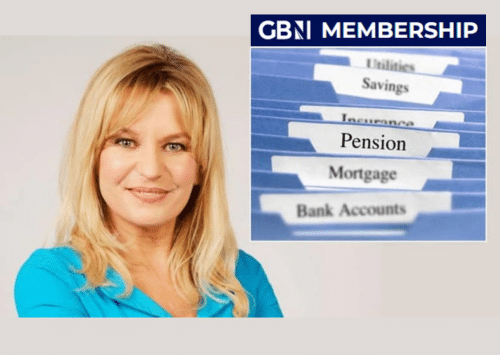
Jasmine Birtles explains tax on pension rules
Jasmine Birtles is here to clear up the confusion when it comes to pensions and retirement in our pensions and retirement Q&A, which is exclusive to GB News members.
Question “My wife’s personal allowance this year has reduced from £12,500 to £200. My personal allowance has reduced from £12,500 to £3,300. We are told it’s because we have work pension. My MP has no answer”
That does sound confusing. Taxation is often not at all straightforward to work out! This is why I contacted a specialist in the field, Tom Minnikin, who is a partner at the tax consultancy Forbes Dawson. He said: “The first point to note is that the state pension is a taxable source of income. This is despite the fact – as the tax office has correctly stated – the Department for Work and Pensions (DWP), which administers the state pension, does not operate Pay As You Earn (PAYE). This means the state pension is received gross without any tax collected at source. For a pensioner with no other source of income, things are straightforward because the state pension – currently around £11,500 – is less than the personal allowance of £12,570, meaning they have no tax to pay.
However, for individuals with other sources of income, such as interest on savings, or private pensions, their total income may exceed the personal allowance, resulting in them owing tax. As workplace pensions are taxed at source under PAYE, HMRC will issue the administrator with a tax coding notice
Read the article in full here